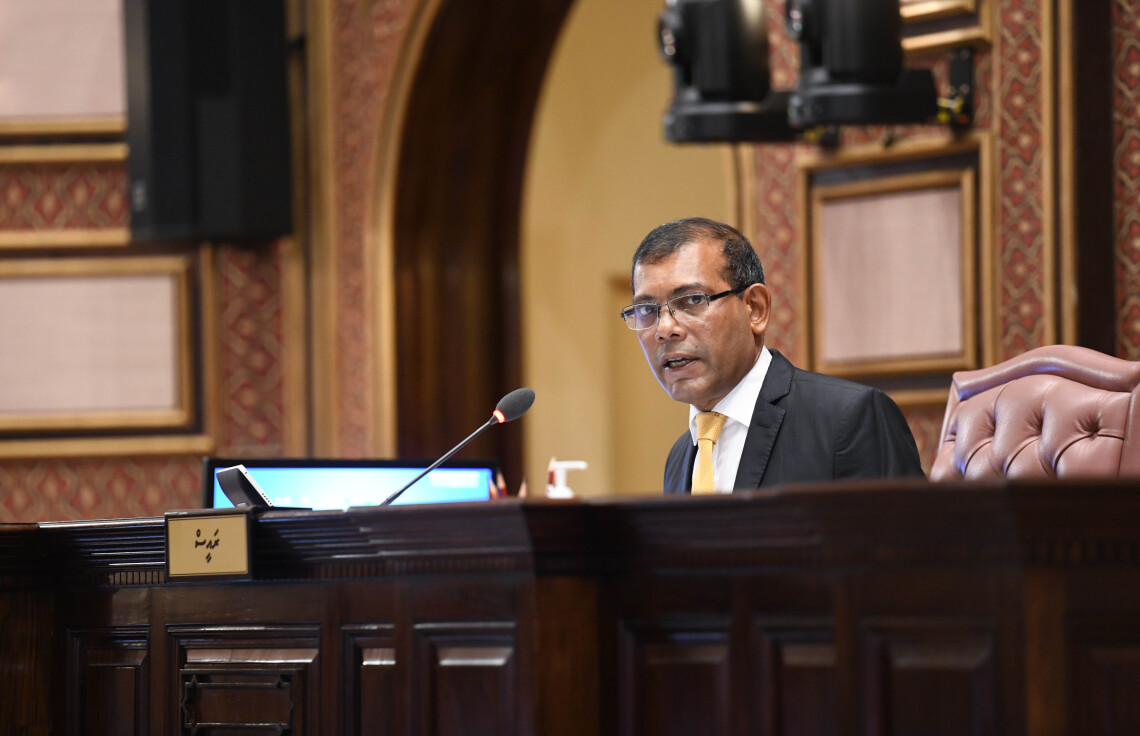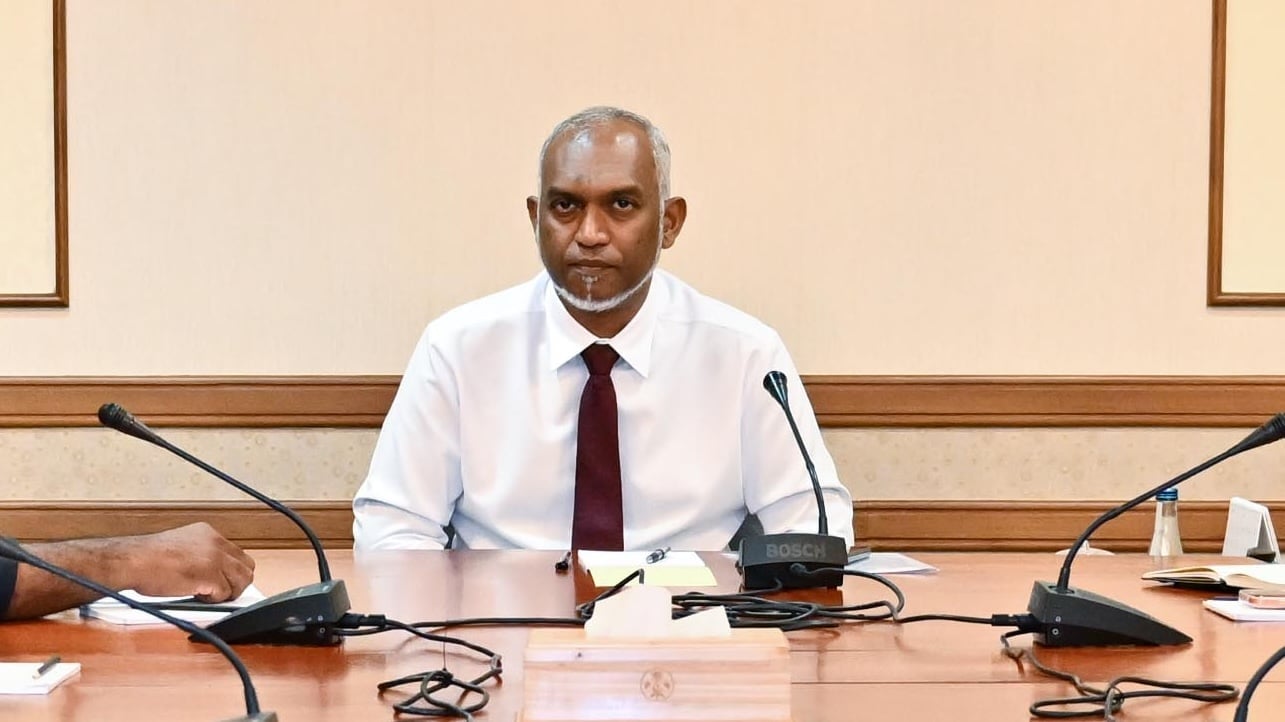Speaking at the recent parliament sitting, Speaker of the Parliament, Mohamed Nasheed said that he would have voted to disapprove the government proposed budget for 2021 if he was sitting as the parliament member for the Central Machchangoalhi seat and not as the Speaker of the Parliament.
Mohamed Nasheed stated his views during the budget debate conducted during the recent parliament sitting.
Further detailing, Mohamed Nasheed said that the government proposed budget includes a huge deficit and for that reason, he would have voted disapproving the budget. He further highlighted the Moody’s Investors Service (Moody’s) statement on the 2021 budget proposed by the Maldivian government, which said that Moody’s expects that Maldives’ fiscal deficit will peak in 2020 at 13.4 percent of GDP and it will be above 10 percent due to the large expenditure needs and due to the weak revenues of the nation.
According to a publication released on Friday, Moody’s stated that the proposed budget for 2021 highlighted the government’s challenging fiscal dynamics amid continuing global movement restrictions, with around a third of the country’s revenue stemming from tourism-related activities.
Moody’s had also stated that even if there is a significant rebound of the Maldivian economy in 2021, it is unlikely to recover to the pre-COVID size until 2022. Moody’s highlighted that the proposed budget by the Maldivian government underscored the significant fiscal deterioration of the country amid the collapse of the tourism industry.
Furthermore, Moody’s noted that they did not believe the new revenue-raising measures proposed in the 2021 budget – activities such as telecommunication license fee changes, land sales and changes to airport development fee – would offset the weaker tax revenues which have been forecasted.
Moody’s said that the external debt repayments will continue to strain the government’s liquidity buffers ahead of its international bond repayment in July 2022.
Mohamed Nasheed stated his views during the budget debate conducted during the recent parliament sitting.
Further detailing, Mohamed Nasheed said that the government proposed budget includes a huge deficit and for that reason, he would have voted disapproving the budget. He further highlighted the Moody’s Investors Service (Moody’s) statement on the 2021 budget proposed by the Maldivian government, which said that Moody’s expects that Maldives’ fiscal deficit will peak in 2020 at 13.4 percent of GDP and it will be above 10 percent due to the large expenditure needs and due to the weak revenues of the nation.
According to a publication released on Friday, Moody’s stated that the proposed budget for 2021 highlighted the government’s challenging fiscal dynamics amid continuing global movement restrictions, with around a third of the country’s revenue stemming from tourism-related activities.
Moody’s had also stated that even if there is a significant rebound of the Maldivian economy in 2021, it is unlikely to recover to the pre-COVID size until 2022. Moody’s highlighted that the proposed budget by the Maldivian government underscored the significant fiscal deterioration of the country amid the collapse of the tourism industry.
Furthermore, Moody’s noted that they did not believe the new revenue-raising measures proposed in the 2021 budget – activities such as telecommunication license fee changes, land sales and changes to airport development fee – would offset the weaker tax revenues which have been forecasted.
Moody’s said that the external debt repayments will continue to strain the government’s liquidity buffers ahead of its international bond repayment in July 2022.















